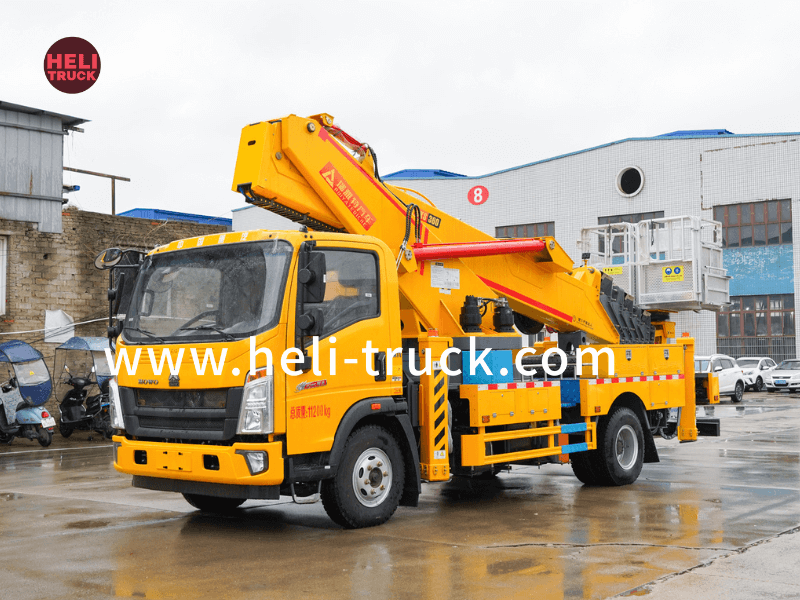Introduction
In recent years, the global focus on environmental sustainability and waste management has been increasing, leading to the development and implementation of innovative technologies to address these challenges. One such technology that has significantly contributed to efficient waste disposal is vacuum truck waste disposal technology. Vacuum trucks play a crucial role in the collection and transportation of various types of waste materials, helping to ensure proper disposal and reduce environmental impact. This article explores the key features, benefits, applications, and future prospects of vacuum truck waste disposal technology in promoting environmental sustainability.
Overview of Vacuum Truck Waste Disposal Technology
Vacuum truck waste disposal technology involves the use of specialized vehicles equipped with powerful vacuum systems to collect and transport different types of waste materials. These trucks are designed to create a vacuum inside a storage tank, allowing them to suck up liquid, sludge, and solid waste from various sources such as industrial facilities, construction sites, and municipal wastewater systems. The collected waste is then transported to designated disposal sites for treatment or recycling, contributing to the overall management of waste and environmental protection.
Key Components of Vacuum Trucks
Vacuum trucks are equipped with several key components that enable them to effectively collect and transport waste materials. The primary components of a typical vacuum truck include:
1. Vacuum Pump: The vacuum pump is the heart of a vacuum truck, responsible for creating the suction force needed to extract waste materials. These pumps are available in different sizes and configurations, depending on the specific requirements of the waste disposal operation.
2. Storage Tank: Vacuum trucks are equipped with storage tanks that hold the collected waste during transportation. These tanks are designed to withstand the pressure and contain the waste securely to prevent leaks or spills.
3. Hose and Suction Nozzle: Vacuum trucks are fitted with hoses and suction nozzles that are used to extract waste materials from different sources. These components are designed to be flexible and durable to handle various types of waste materials.
4. Filtration System: To prevent contaminants and debris from entering the vacuum pump, vacuum trucks are equipped with filtration systems that help to separate solids and liquids from the extracted waste.
https://www.heli-truck.com/garbage-compactor-truck/ of Vacuum Truck Waste Disposal Technology
The adoption of vacuum truck waste disposal technology offers several benefits, both in terms of environmental sustainability and operational efficiency. Some of the key benefits of vacuum truck waste disposal technology include:
1. Efficient Waste Collection: Vacuum trucks are highly efficient in collecting and transporting waste materials from diverse sources, reducing the need for manual labor and multiple trips to disposal sites.
2. Versatility: Vacuum trucks are versatile and can handle a wide range of waste materials, including liquids, sludge, and solids, making them suitable for various industries and applications.
3. Environmental Protection: Vacuum truck waste disposal technology helps to prevent environmental pollution by safely containing and transporting waste materials to designated disposal sites.
4. Cost-Effective: Vacuum trucks offer a cost-effective solution for waste disposal, as they enable faster and more efficient collection and transportation of waste materials, reducing operational costs.
Applications of Vacuum Truck Waste Disposal Technology
Vacuum truck waste disposal technology finds applications across various industries and sectors where the efficient management of waste materials is essential. Some of the common applications of vacuum trucks include:

1. Industrial Waste Management: Vacuum trucks are used in industrial facilities to collect and transport hazardous waste, chemicals, and other industrial by-products for proper disposal.
2. Municipal Wastewater Systems: Vacuum trucks play a crucial role in maintaining and cleaning municipal wastewater systems, including sewers, storm drains, and septic tanks.
3. Oil and Gas Industry: Vacuum trucks are utilized in the oil and gas industry for the collection and transportation of drilling fluids, sludge, and other waste materials generated during drilling operations.
4. Construction Sites: Vacuum trucks are employed at construction sites to remove debris, slurry, and other waste materials, ensuring a clean and safe working environment.
Future Prospects of Vacuum Truck Waste Disposal Technology
As the global focus on environmental sustainability and waste management continues to grow, the future prospects of vacuum truck waste disposal technology look promising. Advancements in technology, such as the integration of automation and remote monitoring systems, are expected to further enhance the efficiency and effectiveness of vacuum trucks in waste disposal operations. Additionally, the development of eco-friendly and sustainable waste disposal methods, such as waste-to-energy conversion and recycling, will play a significant role in shaping the future of vacuum truck waste disposal technology.
Conclusion
Vacuum truck waste disposal technology has emerged as a valuable solution for the efficient collection and transportation of waste materials, contributing to environmental sustainability and waste management efforts. With their versatile capabilities, cost-effective operation, and environmental benefits, vacuum trucks play a critical role in various industries and sectors where the effective disposal of waste is essential. As technology continues to evolve and environmental regulations become more stringent, vacuum truck waste disposal technology is poised to play an even more significant role in enhancing environmental sustainability and promoting responsible waste management practices.
